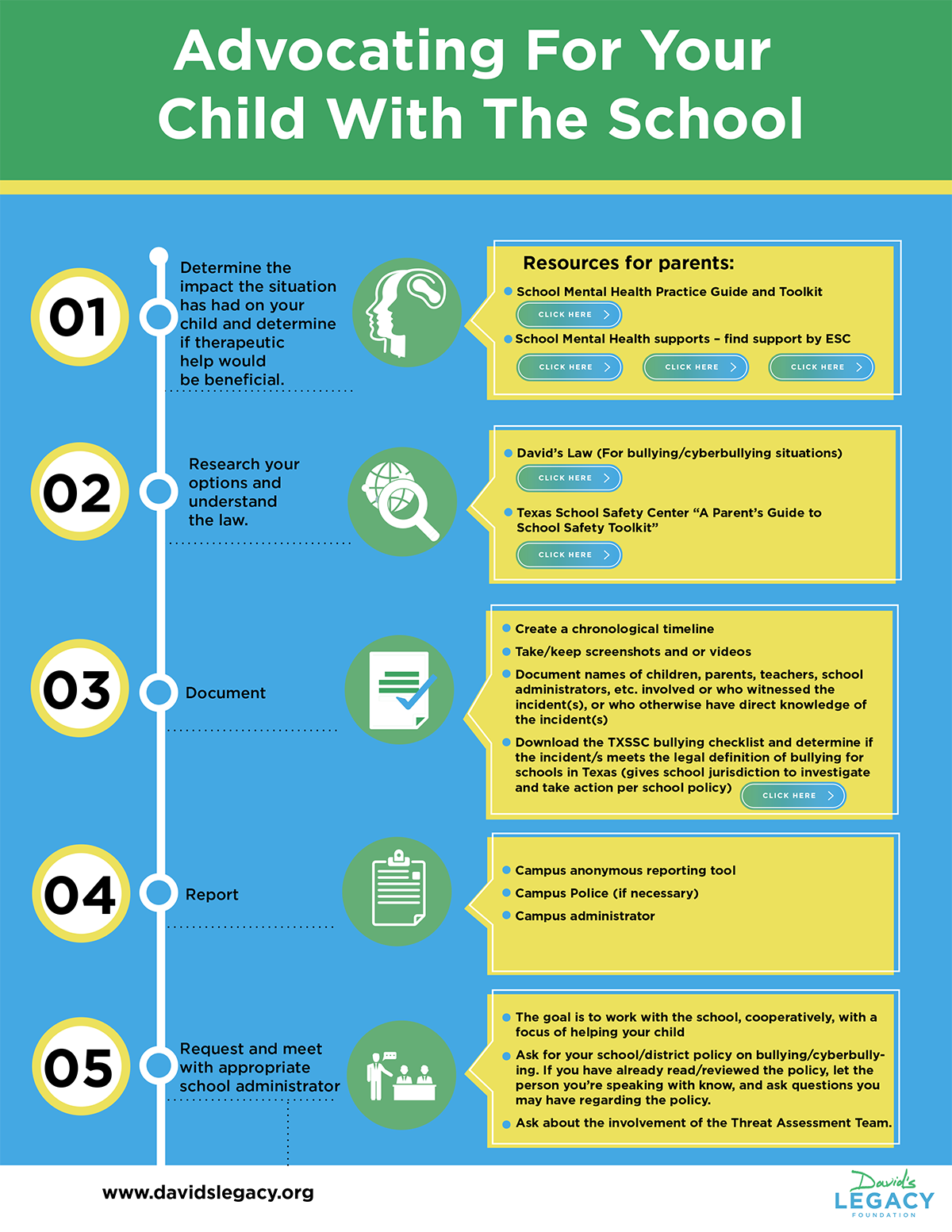“David’s Law” provides for civil legal remedies with relaxed requirements and pro se forms to make cyberbullying stop. To learn more about those remedies and to access the forms click here:
In a bullying or cyberbullying case, attorneys may start the process by sending cease and desist letters to the parents of bullies making them aware of the situation, demand the bullying stop immediately, and if it does not stop, advise them of the legal actions that will be taken to ensure it does end.
Ultimately, if the harassment continues, the attorney may recommend pursuit of the available legal remedies in court. In appropriate situations, attorneys file civil lawsuits against the parents of children who bully and the bullies themselves, utilizing the civil court system to obtain court orders tailored to the specific situation commanding the bullying to stop. This is done through emergency restraining orders, protective orders, and injunctions.
In instances where bullies are using technology to hide, attorneys use the civil court system to try to unmask their identity so the bullies can be confronted to bring an end to the bullying.
If you are completing the DBM Project request form, we know that your child needs help. Upon completion you will receive a phone call from a trained SALSA volunteer within 72 business hours. During this call we will talk through your available resources. If a referral for legal services is the logical next step, depending on your financial means, we will either connect you with a DBM Project pro bono attorney, a legal aid provider in your area, or provide a referral to a private (paid) attorney. We will do our best to connect you as quickly as possible but it may take up to 10 days for a match.
If you feel your child is at risk of self-harm, please contact a mental health professional, such as your local children’s hospital or mental health officer with local law enforcement, as soon as you can, and if you feel that the risk of self-harm is imminent, call 911 immediately.
If you feel a crime has been committed, or is likely to occur, please contact your local law enforcement to file and pursue a complaint.



